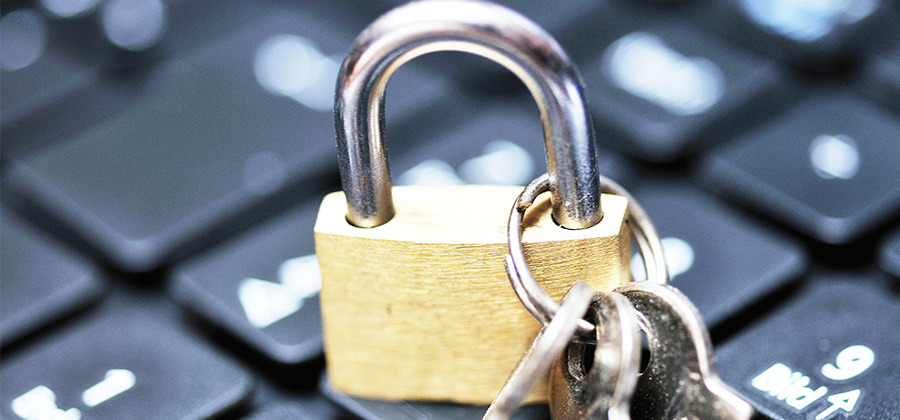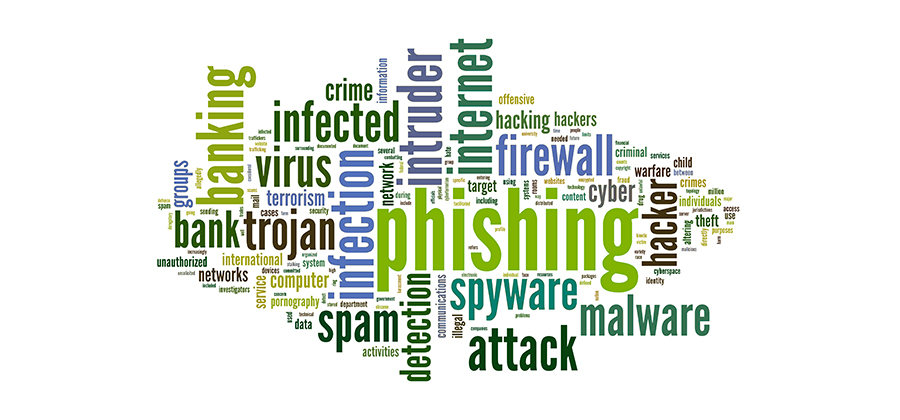Fraud is certainly not something that only happens to other people. It is therefore imperative to give prevention the time and attention it deserves. With some relatively small actions, you can considerably reduce the risk of becoming a victim of fraud. And of course, you are not alone in the struggle against fraud!

What is being done by your bank?
Just like fraud itself, fraud control has also become a fully-fledged specialisation. BNP Paribas Fortis is strongly committed to fraud control and makes the necessary resources available in this respect. A whole series of systems and measures have already been introduced to stop these professional fraudsters in their tracks:
- Prevention through permanent training for the bank's employees and internal and external communication;
- Inspection and tracking systems to detect any abnormal transactions, even if the payment seems perfectly fine (correct channel, correct signatures, etc.). Your relationship manager may have already contacted your company to have a transaction confirmed.
A lot of attention is also paid to tracking and eliminating so-called "money mules". intermediaries who make their bank account available (either unwittingly or maliciously) to criminals in order to transfer stolen money abroad; - Analysis and improvement systems used in cases when fraud unfortunately occurred or new fraud techniques or trends are surfacing.
These resources are certainly not watertight, but they make it possible to reduce the risk substantially. The bank also deploys specialists who are fully committed to fraud detection and prevention. They also conduct in-depth investigations into fraud incidents, file claims with the police and take the necessary measures to protect and recover any embezzled money.
Which measures can you take?
1. Thorough information, the basis of an effective prevention policy
- Explain that this risk exists and that your employees should consider all forms of information as tangible company assets – there is no such thing as "innocent" data.
- Encourage them to critically investigate and to report any questions deviating from the normal state of affairs.
- Work on developing a monitoring culture within the workplace. This does not need to affect a serene working atmosphere or trust between colleagues however.
- Be wary of any change of habits in your customers or suppliers. For example, if you are asked to make an invoice payment to an account abroad although you usually make your payments to a domestic account, this could indicate that something is wrong. Be sure to check this with your customer or supplier through known, reliable communication channels.
2. Protect your IT systems
First of all, some nuance is warranted: despite reports in the press about hacking and other fraud attempts, PC banking Business, Connexis and Isabel are still by far the safest channels for your financial transactions. However, we recommend you observe the following rules:
- Install an anti-virus program and a firewall on your computer and update these systematically.
- Do not respond to any questions by telephone. Your bank will never ask you for a code or any confidential information by telephone.
- Only open the PC banking Business or Isabel session. In other words, make certain that other websites are never active.
- Only sign the transactions that you were expecting or that you entered yourself with your electronic codes. If in doubt, stop the current transaction immediately.
- Do not click on links to the bank's website, particularly if they have been sent by e-mail. Always type the URL yourself.
- Take the time to establish whether any suspicious transactions were made, such as transfers to unknown or foreign accounts.
3. Do not allow any phishing for your data
All in all, phishing is relatively rare. Nevertheless, you may suddenly receive an e-mail that looks exactly like a message from your bank. Remember that your bank will never ask you for any personal data by e-mail (or telephone). If you do receive such a request, it will not be from the bank.
Other possible indications are poor language in the message, an incorrect salutation or the fact that the mail ended up in the spam folder. We recommend you mark a phishing e-mail as "unwanted e-mail" in your e-mail application. You can also report the offence to your internet provider, so the sender can be blocked.
4. Block fake paper transfers
If you are a frequent user of electronic banking, you can ask your relationship manager to block your accounts to limit the risk of fake paper transfers. Of course, this does not mean that all transactions are automatically stopped!
However, when BNP Paribas Fortis receives a manual payment order for one of the blocked accounts, our systems will automatically refuse the transaction and inform your relationship manager, who will contact you to verify whether this transaction can indeed be executed.
If you are unable to use your electronic banking channels and you need to switch to paper transactions because of a computer problem, for example, all you need to do is inform your relationship manager.
Remain vigilant
18.04.2016
How do fraudsters operate? A summary of the most common techniques
Organised and professional fraud have not only become more common, the approach of fraudsters is also increasingly subtle, bold and sophisticated, particularly if they are targeting organisations' financial transactions.
They mostly use (a combination of) the following techniques:
Fake or forged transfers
This technique means that the fraudsters send fake "manual" transfers, i.e. paper transfer forms, letters or faxes, to their target's bank. The signatures on these payment orders tend to be perfectly recreated and can barely be distinguished from the original.
Forged invoices
In this case real invoices are intercepted and forged before they reach the debtor or the bank. This takes place at the postal service or at the organisation itself in cases of internal fraud.
The fraudsters then change the beneficiary's account number. For invoices this is often done with a sticker asking you to make your payment to a new account number from now on – hence the name "sticker fraud" – but nowadays devices or software are also used to create near perfect forgeries.
Social engineering and phishing
This form of fraud is based on manipulation: the fraudsters try to mislead their victims by urging them to perform certain transactions, usually involving the transfer of money. To make their orders seem real, they first collect names, direct telephone numbers, account balances, order or customer lists, etc.
This data is usually gathered from public websites or social media or even by retrieving non-shredded documents from bins. However, sometimes the fraudsters also contact the victim directly. They do this in an exceptionally convincing way, for example by pretending to be a member of the management or a colleague from a foreign branch. This type of fraud often results in heavy losses that are sometimes accompanied by extra damage in terms of solvency and the capacity to pay back loans.
Phishing is a specific sub-form of social engineering used by criminals to "fish" for personal data, mainly by e-mail, that enables them to steal money from a bank account at a later stage. This is often done by inspiring a "feeling of fear": they claim that your PIN code has expired or that your account will be closed if you do not respond immediately. In order to increase the fraud's chances of success, the criminals often call the victims in order to "guide" them (also called "vishing").
Whereas phishing is mainly known through mass mailings – a large group of people will receive the same, often rather amateurish personalised e-mail – we have now also noticed a shift in direction towards "spear phishing". Spear phishing means that the fraudsters focus on a very limited number of victims, after they have gathered as much personal information as possible in order to make their message as plausible as possible. These victims are obviously a "lucrative" target for the fraudsters: with affluent private individuals or companies, the loot is often much greater
Hacking
Whereas social engineering is mainly based on human shortcomings, hacking focuses on technical or material shortcomings. It all starts with a virus that hackers smuggle into your computer. This program collects your data and observes what you are doing. When you open an online banking session shortly afterwards, the hacker is informed. They can then make a pop-up appear on your screen urging you to confirm a payment order or enter your secret code, for example.
Nowadays hackers also increasingly commit multi-channel fraud, during which they call you during your online banking session to request confidential information.
Infiltration
A number of recent fraud cases show that a new and particularly alarming fraud technique is on the rise. An accomplice of the fraudsters seeks employment with the targeted organisation and becomes familiar with the payment and monitoring procedures. After a few months, this "sleeping fraudster" will carry out one or several large transfers to the fraudsters' account and disappear into thin air.
18.04.2016
What to do in case of fraud?
Who can you contact when facing a case of fraud?

You received a suspicious e-mail, which you did not respond to
Forward the suspicious e-mail as an attachment to our specialists at phishing@bnpparibasfortis.com. They will try to eliminate the fraudulent website as soon as possible.
You shared an electronic signature or other confidential information (by telephone or on a website), you entered information into suspicious screens in PC banking or you clicked on a link in a suspicious e-mail.
Please contact our Help Desk.
- PC banking/PC banking Pro +32 (0)2 228 08 88
- PC banking Business +32 (0)2 565 05 00
- Central Competence Centre Connexis +32 (0) 2 228 47 77
- Isabel +32 (0) 2 404 03 35
- Isabel (BNP Paribas Fortis) + 32 (0) 2 565 28 34
Please contact your relationship manager immediately.
You are facing a different type of fraud
Please contact your relationship manager immediately
Do you have any further questions about how you can actively protect yourself against the risk of fraud?
Discuss them with your relationship manager. They can give you formal advice in person or appeal to the bank's specialists to discuss the specific risks for your organisation (in terms of your payment services or financial products, for example).
18.04.2016
Half of Belgian businesses have inadequate security against cyber-attacks
From the Global Information Security Survey it appears that 1 in 2 Belgian companies does not feel able to track down sophisticated cyber-attacks.
The annual Global Information Security Survey looked at the cyber security of 1,755 organisations from 67 countries, including 56 from Belgium. The results from our country are, to say the least, alarming: half of respondents do not currently feel able to detect a sophisticated cyber-attack, while according to 88% the architecture for securing information does not fully meet the needs of their organization.
The respondents are most concerned about cyber-attacks by criminal organisations (54%), hacktivists (54%), hackers working solo (53%) and – surprisingly – their own employees (40%). Phishing and malware are also high on the list of potential threats.
Five to midnight
Although the respondents realise that cyber fraud is becoming ever more sophisticated and that danger lurks around many corners, less than half have a team for system security. The reason is simple: the vast majority of respondents admit they have no qualified employees available and/or find it difficult to attract people with the necessary skills.
27% do not analyse any cyber threats, while 21% do not even have any identity and access management. In other words, the door to the digital world is wide open to a whole host of trouble. Modernisation of security is therefore urgently needed.
(Source: EY and De Tijd)
10.06.2024
Electronic invoicing between companies to become mandatory
The bill to introduce this obligation in Belgium has been submitted to the Federal Parliament. If the draft bill is approved, B2B e-invoicing will become mandatory from 1 January 2026. Our experts explain why Belgium wants to introduce these new rules, what the implications are for your company and how we can better support you.

“The bill is consistent with international developments and initiatives at the European level,” says Nicolas De Vijlder, Head of Beyond Banking at BNP Paribas Fortis. "Europe's ambition is a harmonised digital standard. Structured e-invoicing between companies will also reduce the administrative burden of invoicing, enabling companies to work more efficiently and increase their competitiveness. The automation of VAT declarations will also help governments prevent tax fraud and adjust economic policies based on more qualitative data.”
Evolution rather than a revolution
“The new legislation is an evolution rather than a revolution,” adds Erik Breugelmans, Deputy Managing Director at BNP Paribas Factoring Northern Europe. "Digitalisation is becoming pervasive at all levels of society, as we have seen with the increase in electronic payments, as well as the additional obligations in recent years regarding electronic invoicing to the government. In this sense, the bill for mandatory electronic invoicing between companies is a logical next step. Our bank is happy to contribute to this process, although we do not intend to offer the same services as accounting software or fintechs. However, we are happy to help our customers with payments and financing."
The impact on businesses
“Customers need to be aware that the new regulations will have an impact on their internal and external processes,” continues Erik Breugelmans. "The majority of Belgian companies mainly serve an international market, which means that the introduction of electronic invoicing will be more complex for them than for companies operating in the domestic market. As the legislation will be introduced in one go, they need to start preparing now."
“The new rules will affect a company’s accounting department as well as its IT department,” emphasises Nicolas De Vijlder. "The procedural requirements are key, otherwise the automated process will not work. However, one of the main benefits of advanced automation is that everything can be done faster and more efficiently. The time between sending an invoice and paying it will be shorter and cash flows more predictable. In addition, it will also reduce the risk of error and fraud, as all transactions will pass through a secure channel."
Ready to offer you even more and better support
“Thanks to the far-reaching digitisation resulting from the new regulations, we will be able to further optimise payments,” concludes Erik Breugelmans. "As a bank, we need to finance our customers’ receivables as quickly and efficiently as possible, so that they have easier access to their working capital. In addition, because we have already gone through an entire process in terms of large-scale automation, we will be able to adapt quickly to the new rules. We can also draw on the expertise of the BNP Paribas Group, which is currently developing an e-invoicing solution for large companies."
Want to know more?
Listen to the episode on B2B e-invoicing :
